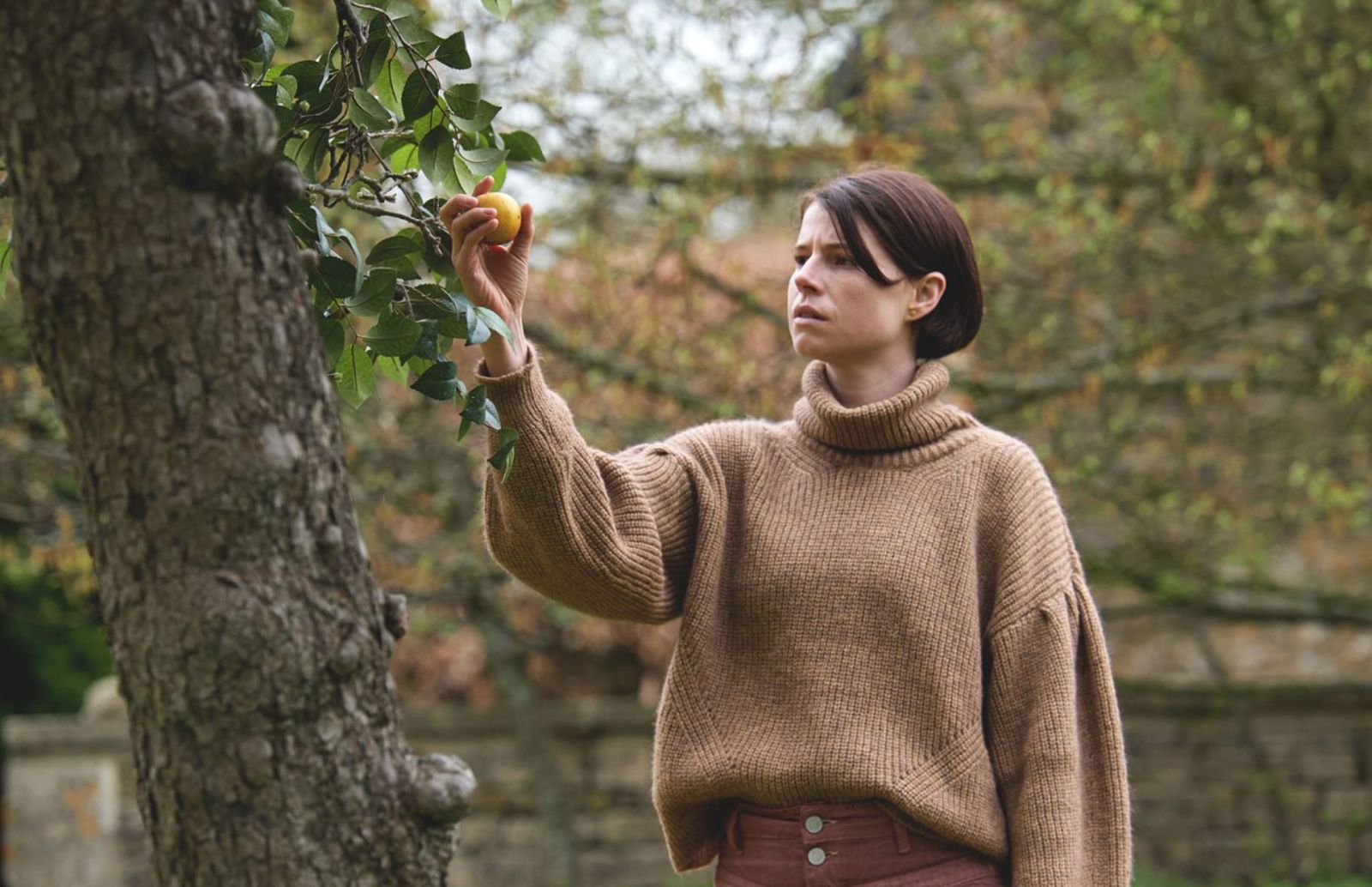After personal trauma, a protagonist retreats to a secluded location for solace and inner reconciliation only to be further haunted. The set-up is familiar to many a horror film, but with Men being an Alex Garland creation, something more peculiar lurks behind this surface. A blend of the compact thrills of Ex Machina and the surreal oddities of Annihilation, his latest is delightfully inscrutable in its strangest moments yet thematically simplistic and disappointingly misshapen on the whole. Using misogyny—both subtly ingrained and its more vicious, physical form—as the window dressing for allegory-heavy arthouse horror, Men often feels like it is just scratching the surface of more complexity, faintly suggesting rather than genuinely exploring its roughly sketched ideas.
Heading to the remote English countryside after the death of her husband (Paapa Essiedu), Harper (Jessie Buckley) arrives at a tidy, comfortable house she’s rented for two weeks from Jerry (Rory Kinnear). Jolly yet humorously awkward in his dry, quintessentially British quips, Jerry provides a tour of the estate, hinting that something may be amiss but not raising any red flags for Harper. Garland peels back the layers of their conflict with orange-hued, vivid flashbacks on the fateful day of her husband’s death. We learn about his threats of suicide upon Harper wanting a divorce and repeatedly see images of him falling to his death; whether it was an accidental slip remains mysterious. While making her way around the small village Harper believes she’s being stalked and, although unperceived from her character’s point of view, we see Rory Kinnear portraying every man (and boy) she comes across in the town.
Each male character enacts some form of misogynistic aggression—a belittling priest acting physically inappropriate and victim-blaming, a naked stalker invading her privacy, a policeman who shrugs away her very valid fears. Garland seeks to convey that these everyday horrors are hiding in plain sight while also toying with horror tropes through refutation. When we first see the stalker character in full he’s in the middle of an open field, far removed from our protagonist. When he comes to her house it’s first played as a shock, but then a dash of humor abounds as he hangs around, peering in window by window before being apprehended by the police with no fuss. If these subversions of genre tropes are well-executed, it soon becomes clear that there’s not much more on Garland’s mind. While there’s no argument in his thesis that women are faced with unprovoked advances at every turn, the execution is rendered fairly shallow––particularly in its lack of deeper characterization to Harper, who is defined almost entirely by the quick flashbacks centered on the worst day of her life. With the patient building of tension in this first act, including no shortage of contemplative visuals setting up the Eden that will fall, there’s the hope Garland may have more to elucidate on the subject of abuse, but that moment never comes as the film seems to skip over a second act and jump right into a go-for-broke final third.
Ratcheting up the level of body horror, Garland grafts the gambit of jaw-dropping, confounding turns of Annihilation’s finale to this more contained tale, here connecting past trauma rebirthed into new forms and suggesting history has cyclically repeated itself ever since the Biblical foundation of original sin. It’s an ambitious, outré climax that seems more designed to spur conversation than provide any semblance of catharsis for Harper’s suffering. And though Garland dangles such a resolution––including a final moment that nods to Get Out but is far less fulfilling––it’s the audacious, what-am-I-seeing imagery that compels more than any intended character-centered emotional release.
Despite fairly little to work with, Buckley brings an intense feeling of grief in her isolation and increasing paranoia, playing against type of scream-heavy, final-girl horror tropes. Giving clearly committed performance(s), Rory Kinnear nails the difficult balance of humorously scenery-chewing to chillingly frightening with his cadre of characters. Cinematographer Rob Hardy, continuing his collaborations with Garland, brings a certain vibrancy though the clean digital sheen leads to a lack of tangibility, both when highlighting the natural earthly wonders of the first half and the gonzo horror elements of the latter. Garland has enough formal chops that Men is never plodding, yet that briskness ultimately underserves the blender of ideas being mixed about. The film is all the better for not over-explaining its gleefully outrageous final moments, but one wishes the journey getting there was handled with more consideration.
Men opens in theaters on May 20.

